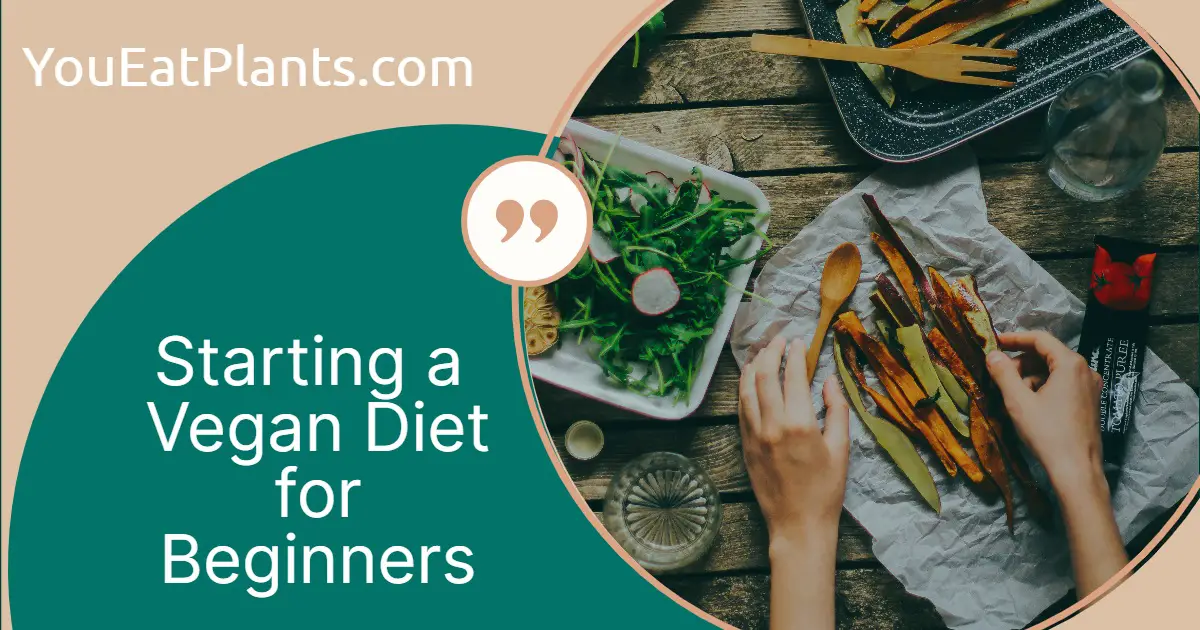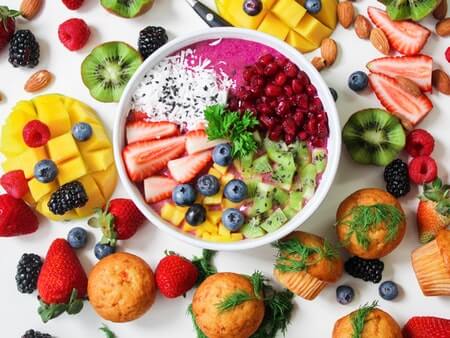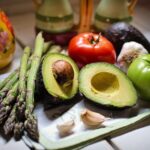
If you’re new to a vegan diet, it can be overwhelming trying to figure out what to eat and how to ensure that you’re getting all the nutrients your body needs.
By following these tips, you can make the transition to a vegan diet a little easier and ensure that you’re getting all the nutrients your body needs.

- What is a Vegan Diet?
- Vegan Diet Benefits
- Transitioning to a Vegan Diet
- Vegan Food List
- 4 Week Vegan Meal Plan
What is a Vegan Diet?
A vegan diet is a type of plant-based diet that excludes all animal products, including meat, dairy, eggs, and honey. People choose to follow a vegan diet for a variety of reasons, including ethical concerns about animal cruelty, environmental concerns about the impact of animal agriculture on the planet, and health benefits such as weight loss and reduced risk of certain diseases.
Vegan Diet Benefits
There are several potential benefits to following a vegan diet:
- Weight loss: Some people find that they lose weight on a vegan diet because plant-based foods tend to be lower in calories and fat than animal products.
- Improved heart health: A vegan diet can help lower blood pressure and cholesterol levels, which can reduce the risk of heart disease.
- Better blood sugar control: Plant-based diets have been shown to improve blood sugar control and reduce the risk of type 2 diabetes.
- Increased intake of nutrients: A vegan diet can be rich in a variety of nutrients, including fiber, antioxidants, and phytochemicals, which may help reduce the risk of certain diseases.
- Environmental benefits: Vegan diets require less land, water, and other resources to produce than diets that include animal products, making them more environmentally sustainable.
It’s important to note that while a vegan diet can be healthy, it’s important to pay attention to nutrient needs and make sure to get enough protein, iron, calcium, and other nutrients that are commonly found in animal products. A registered dietitian can help you plan a balanced vegan diet that meets your nutritional needs.
Transitioning to a Vegan Diet
Here are a few tips for vegan diet beginners:
- Start with familiar foods: It can be helpful to start with foods that you already enjoy and know how to prepare. This will make the transition to a vegan diet feel less daunting.
- Experiment with new plant-based protein sources: There are many delicious plant-based protein sources to try, such as beans, lentils, tofu, tempeh, and seitan. Experiment with different types of plant-based proteins to find what you like best.
- Fortify your meals with fortified foods: Some plant-based foods, such as plant-based milks, cereals, and nutrition bars, are fortified with nutrients that may be harder to get on a vegan diet, such as vitamin B12 and calcium. Look for fortified versions of these foods to help ensure that you’re getting enough of these nutrients.
- Don’t be afraid to supplement: While it is generally best to get your nutrients from whole foods, sometimes it can be helpful to supplement with certain nutrients that may be harder to get on a vegan diet, such as vitamin B12 and omega-3 fatty acids. Talk to a healthcare provider or registered dietitian to determine if supplements are necessary for you.
- Plan ahead: It can be helpful to plan your meals and snacks in advance to make sure you’re getting a variety of nutrients and to prevent last-minute decisions that may not be as healthy.
- Don’t be too hard on yourself: Transitioning to a vegan diet can be a learning process, and it’s okay to make mistakes or have setbacks. Don’t be too hard on yourself and remember that every little bit counts.
- Seek support: It can be helpful to surround yourself with like-minded people who can provide support and encouragement. Consider joining a vegan support group or connecting with other vegans online.
Remember to be patient with yourself and to seek support if you need it. With time and practice, following a vegan diet can become second nature.
Vegan Food List
There are many different vegan foods available, some of which you may never have previously considered.

Here is a list of some common vegan foods:
- Fruits: apples, bananas, berries, oranges, mangoes, grapes, etc.
- Vegetables: leafy greens, broccoli, bell peppers, tomatoes, onions, potatoes, etc.
- Grains: rice, oats, quinoa, pasta, bread, etc.
- Legumes: beans, lentils, chickpeas, peanuts, etc.
- Nuts and seeds: almonds, walnuts, chia seeds, flaxseeds, etc.
- Plant-based proteins: tofu, tempeh, seitan, plant-based meat alternatives, etc.
- Plant-based milks: almond milk, coconut milk, soy milk, etc.
- Plant-based cheese: vegan cheese made from nuts or plant-based milks
- Plant-based spreads: hummus, peanut butter, almond butter, etc.
- Plant-based sweets: chocolate, cookies, ice cream, etc. made with plant-based ingredients
This is just a sample of the many vegan foods available. There are also many vegan convenience foods, such as frozen vegan meals, that can make it easier to follow a vegan diet. It’s important to vary your food choices to ensure you are getting a range of nutrients.
4 Week Vegan Meal Plan
If you are looking for help and some meal plans when starting a vegan diet, you can try the Vegan 30-Day Challenge here.
Lance has been passionate about the plant-based diet and we have been following a whole food plant-based diet for over 5 years. We focus on health, natural healing, weight management, animal rights, and the health of the planet and environment by focusing on whole plant-based foods and sustainable practices.
Learn more at the About Me page and follow on social media at the links below.




